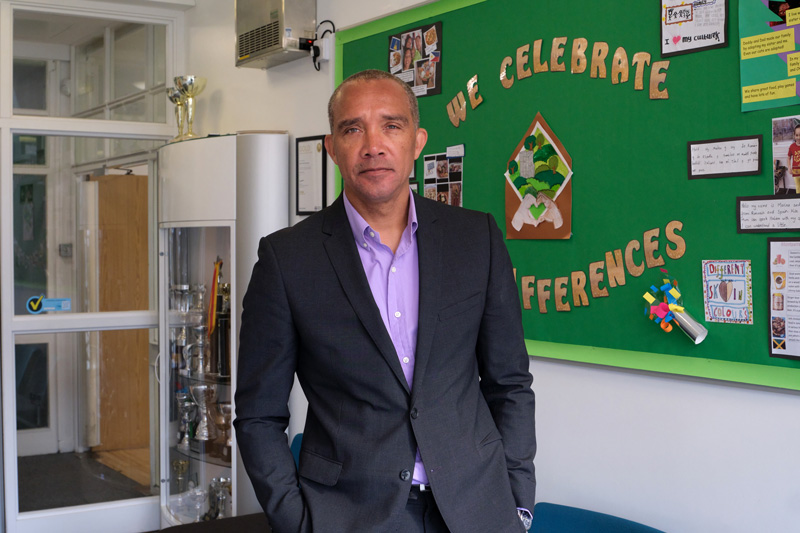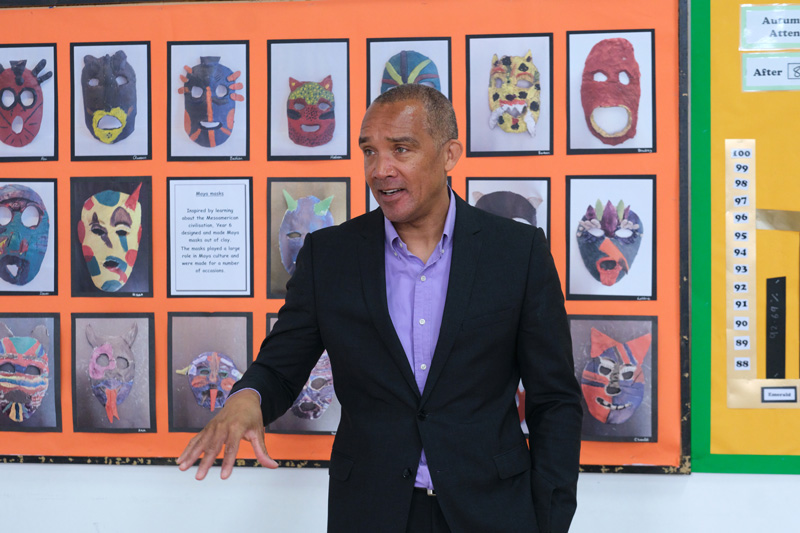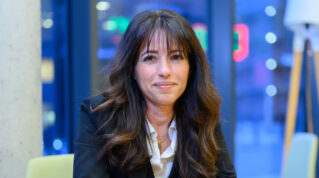After the recent outpouring of anger over the death of Ruth Perry, a headteacher who described his Ofsted experience as “uncannily similar” speaks out.
Calvin Henry wipes away tears as he recalls the moment he was told his school had been rated ‘inadequate’ by Ofsted last year. “I stared at him [the lead inspector] with absolute disbelief,” says the head of a north London primary.
After the inspector left his office at St Mary’s Church of England Primary in Haringey, he typed his resignation letter, turned off his phone and walked out, missing the final feedback meeting.
“I didn’t want to be seen by anybody. I was distraught, wondering ‘what do I do now?’” says Henry, 54. By the time he arrived home five hours later, his partner had started calling local hospitals.
Seven months after the inspection in March 2022 – in which both leadership and management and behaviour and attitude were given the lowest grade – the school was rated ‘good’ in all areas.
But for Henry, who will take early retirement in July, the damage of the initial “wrong” judgment had been done, to his school and his mental health.
After the recent outpouring of anger over the death of Ruth Perry, whose experience with Ofsted he describes as “uncannily similar”, he believes the time is right to speak out. It may cost him his second job – like many leaders he is also a part-time Ofsted inspector.
“I know I will burn my bridges with Ofsted and I regret that wholeheartedly, but the time is ripe for change,” he says.
‘I know the framework. I know the system’
From “humble beginnings” in Hyson Green, a predominantly working-class suburb of Nottingham, Henry went on the London School of Economics.
He has since spent nearly 30 years in education.
“I was successful and I knew the way to succeed in life was through education. I’ve always wanted to ensure children from similar backgrounds have similar opportunities.”
A former primary teacher, he became a head in 2006 and led two other London schools, one of which was twice rated ‘outstanding’.

Following a three-year stint in school improvement for Hackney Council, Henry “missed headship so much” he returned to lead St Mary’s in September 2018.
When an Ofsted inspector notified him of what was supposed to be an ungraded inspection on March 29 last year – just 15 minutes before the team’s arrival – he was certain the school would remain ‘good’.
“I know the framework, I know the system. I can evaluate accurately the strength of my own provision.”
He believes that an isolated incident days beforehand led to the “unfair downgrading”.
The day the inspectors called
Inspectors arrived on a Tuesday morning, met with the school’s safeguarding lead and took note of the incident, which involved a small group of boys using “inappropriate sexualised language” towards a group of girls.
The episode was under internal investigation and an email had been sent to parents.
Henry says he spoke to the children involved separately, supporting the girls and talking to boys about “toxic masculinity and the age of criminal responsibility”.
But Ofsted’s report said leaders “do not fulfil their duties to keep pupils safe, including seeking advice or referring concerns to outside agencies in a timely way”.
According to Henry, inspectors spoke to some of the children involved, who gave other examples of the “physical aggression” and “use of racist, homophobic” language mentioned in the report.
He contests this portrayal of the school, and says his team was “robustly dealing” with the incident.
“Any headteacher would be hugely upset if their school was described as one where sexist, racist and homophobic language was regularly used by children.
“Being a black, gay man, fully committed to promoting the protected characteristics, a number of which define who I proudly am, this description of my school was particularly devastating, along with the assertion that my school was failing in its duty to keep children safe.”
Suicidal thoughts
Henry describes how he contemplated taking his own life after Ofsted delivered the news. “It crosses your mind…just to do something to end it all.”
He was supported by his partner and a friend when he got home and took the next day off, skipping an Ofsted training conference. Then his chair of governors turned up and told him his resignation wasn’t accepted.
By Friday, Henry was back at work, trying to charge forward with school improvement.
The school made it to stage two of Ofsted’s complaints process, but none of the 16 arguments it put forward were upheld.
In the months before the report was published in September, he went from a position “of strength and confidence to one of feeling powerless, weak and humiliated”.
Ofsted told him he was no longer needed for four inspections lined up in the summer term, and the government began the process of issuing an academy order, causing “another layer of stress”.
He quit as a governor of a local secondary school and a member of another school trust board. “I felt, what have I got to offer?” In his personal life he withdrew completely.
Ofsted returned months later
The thought of how the outcome would be received by the school’s community was “building and building” all summer. He called his adviser from the local diocese to report he was “in this really dark place” and didn’t know what to do.
A PR company was hired to draft a statement, and a town hall meeting was arranged to address concerns.
Most parents were “amazing”, but about a dozen withdrew their children. The report also landed as prospective parents were touring schools ahead of a January 15 deadline to apply for reception places.
“We hardly had anybody visit – I could probably count them on one hand. We knew that was a direct consequence of the report.”
Ofsted returned in November, this time with four full-time inspectors. Henry said he felt there was “recognition they got it wrong the first time, which is why they came back sooner”.

Their report described a school where “pupils are happy and safe” and the atmosphere is “kind and caring”.
Teachers were said to have “gained expertise” to teach the phonics programme “effectively” and teachers identified “with precision” the gaps in pupils’ knowledge.
It read like a report on a “completely different school”, Henry says. But “nothing of any major significance in terms of practice on a day-to-day basis changed between March and November”.
He puts the change in fortunes down to the inspection teams being “very different from each other”.
Complaints about inconsistency are common. Research from the University of Southampton and UCL recently found female inspectors are more likely to hand out harsher grades for primary schools than their male counterparts, while freelance inspectors are more likely to offer higher grades than in-house staff.
Mandatory support needed
Ofsted published its second report in December, allowing the school to promote its ‘good’ outcome to prospective parents.
“But by then parents’ minds have been made up,” Henry says. The school received 78 applications for this September, compared with 107 last year.
Henry is waiting to hear back after applying for the academy order to be revoked.
In recent months, he has received counselling provided by the Diocese of London, which has helped him with his response to the Ofsted experience and the recent death of a colleague.
But he believes “mandatory” support should be in place for heads whose schools are downgraded to ‘inadequate’.
“What [Ofsted] don’t seem to understand is the impact that single word has on people, on their lives, and how it can shatter and destroy them,” he says.
“Because the school’s inadequate and the leadership is inadequate, you’re therefore inadequate by default.”
He now plans to take early retirement in July, followed by a year of travelling. Until recently he also planned to return to Ofsted, which has asked him to take part in inspections again.
“I believed that by working within the system you could help effect change,” he says.
But he is prepared to sacrifice that following the “impetus and momentum for change” coming from the education sector, with any future career now likely to focus on leadership and headteacher wellbeing.
“It’s only when you’ve been through what other leaders have experienced in terms of being judged so unfairly you fully realise how this has a quite significant and adverse impact on people’s lives.
“The system does need to change…I certainly don’t want to be subject to another inspection.”
Ofsted said it did not comment on individual inspections.
Samaritans
Samaritans are available 365 days a year. You can reach them on free call number 116 123, email them at jo@samaritans.org or visit www.samaritans.org to find your nearest branch.
Charity Education Support runs a confidential helpline for education staff and teachers – call 08000 562 561.









Your thoughts